Gastritis je vnetje želodčne sluznice. Lahko ima precej vzrokov, vključno z bakterijsko okužbo, vzrok pa je lahko čezmerno uživanje alkohola ali uporaba določenih zdravil ter bakterijske oziroma virusne okužbe. Simptomi gastritisa ponavadi vključujejo bolečine v trebuhu, slabost, bruhanje in prebavne motnje.
GASTRITIS: Kaj je gastritis? | Simptomi | Koga lahko gastritis prizadane? | Posvet z zdravnikom | Vzroki gastritisa | ZDRAVLJENJE | Konvencionalno zdravljenje | Alternativa | Zdravljenje doma | Vprašanja in odgovori | Viri/reference
Gastritis je splošen medicinski izraz za vnetje želodčne sluznice. Ponavadi napadi akutnega gastritisa, za katere so značilni nelagodje, slabost, bruhanje ali driska, trajajo le dan ali dva. Izraz »akuten« pomeni, da je napad kratkotrajen, ne pa, da so simptomi neizogibno zelo hudi. Ljudje, ki imajo kronični gastritis, morda niti nimajo bolečin, imajo pa lahko slabosti in izgubijo tek. Kronični gastritis lahko vodi v perniciozno anemijo, zaradi pomanjkanja v krvničkah, ki ga povzroča primanjkljaj vitamina B12.
Gastritis se najpogosteje pojavlja pri starejših, vendar lahko prizadene vsakogar v kateri koli starosti. Za lahke primere gastritisa je ponavadi najbolje, če se zdravite sami. Za hujše primere pa je zdravljenje odvisno od osnovnega vzroka vnetja.
Video vsebina: Gastritis - znaki in simptomi.

Akutni gastritis povzroča bolečino na dotik v zgornjem delu trebuha, slabost in bruhanje. Zdravljenje večinoma ni potrebno.
Če je želodčna sluznica kronično vneta, pogosto več let ne pride do težav. Vsake toliko časa se pojavijo občutek sitosti, pomanjkanje teka in posebej po jedi občutek napetosti in bolečine v delu trebuha. Želodčna razjeda je mogoča posledica takšne kronične vnetosti.
Simptomi
Vsak, bodisi blag ali zmeren simptom, povezan z želodcem, lahko oznanja gastritis. Najpogostejši pa so:
- nelagodje ali bolečina v zgornjem delu trebuha;
- slabost;
Video vsebina: Kakšni so simptomi gastritisa in kako si lahko pomagamo?

- bruhanje;
- driska;
- izguba teka.
Koga lahko gastritis prizadene?
Sluznica, ki obsega celoten želodec, proizvaja za prebavo pomembno želodčno kislino. Posebne celice v sluznici pa istočasno ščitijo kožo pred to agresivno kislino. Če se proizvede preveč kisline ali če zaščitne celice ne delujejo pravilno, lahko kislina neposredno napade sluznico in tako nastane vnetje.
Akutno vnetje želodčne sluznice je pogosto posledica trebušno-črevesne infekcije z določenimi klicami, prekomernega pitja alkohola, bogato obloženih in mastnih jedi ali prekomernega kajenja, lahko pa se pojavi kot stranski učinek pri nekaterih zdravilih.
Za kronični gastritis je v 85 odstotkih infekcij odgovorna klica Helicobacter pylori. Ta bakterija se prenaša z onesnaženimi živili, okuženo vodo in s človeka na človeka, pogosto že v otroških letih. Naseli se v želodčni sluznici in izloča strupene snovi. Predvidoma je okužen vsak tretji človek. Do vnetja želodčne sluznice ali do želodčne razjede oziroma razjede v dvanajstniku pa pride le pri vsakem petem okuženem človeku.
Slika: izgled kroničnega gastritisa pod mikroskopom.

Trenutno se strokovnjaki ukvarjajo z vprašanji, ali so za bolezen odgovorne dedne lastnosti, ali so nekatere vrste bakterij bolj agresivne kot druge in če obremenjujoče situacije zapleten sistem telesne obrambe lahko zmedejo do te mere, da klice povzročajo težave.
Stres v vsakršni obliki lahko dobesedno udari v trebuh. S tem se oslabi tudi imunski sistem in se ne more več tako dobro obraniti klic. Poleg tega so nekateri ljudje, ki so pod močnim pritiskom, nagnjeni k temu, da več kadijo, hitro jejo, pijejo več alkohola in jemljejo pomirjevala ter uspavala, kar pa še dodatno napade želodčno sluznico.
Pri 5 do 10 odstotkih bolezen povzročijo nenehni dražljaji - večinoma zaradi pogoste uporabe zdravil proti bolečinam ali proti vnetjem, kot so na primer sredstva proti revmi ali acetilsalicilna kislina. Te učinkovine dolgoročno škodujejo želodčni sluznici in oslabijo njeno sposobnost, da bi se lahko branila proti želodčni kislini.
Redkeje je avtoimunska bolezen vzrok za vnetje želodčne sluznice: ko se zaradi napačne regulacije imunski sistem obrne proti zaščitnim celicam v želodcu.
Kdaj k zdravniku?
- bruhate kri ali imate krvavkasto, črno ali katranasto blato; imate notranjo krvavitev in potrebujete takojšno zdravniško pomoč.
- postane bolečina v želodcu huda; morda imate želodčno razjedo ali razjedo na dvanajstniku.
- ste pretirano žejni, imate suha usta ali zmanjšano mokrenje; morda ste izsušeni in potrebujete nadomestitev tekočin.
Vzroki gastritisa
Želodec lahko razdražijo in povzročajo akutni ali kronični gastritis številna stanja.
Video vsebina: kaj povzroči nastanek gastritisa?

Acetilsalicilna kislina in druga zdravila, ki se dobijo brez recepta ali so vam jih predpisali na recept, lahko povzročijo erozijo želodčne sluznice. Vnetje želodca lahko prav tako povzročijo tudi virusne ali bakterijske okužbe.
Zdravljenje gastritisa
Pri konvencionalnem in alternativnem zdravljenju je način odvisen od vrste gastritisa, ki, ga imate. Konvencionalna medicina uporablja antacide, ki se dobijo brez recepta, zdravila na recept, antibiotike in v redkih primerih kirurške postopke. Tako zdravniki konvencionalne medicine kot alternativni zdravilci pa vam bodo verjetno svetovali spremembe življenjskega sloga-na primer prenehanje kajenja, ki naj zmanjšajo tveganje za gastritis.
Konvencionalna medicina
Za blage oblike gastritisa so priporočljivi antacidi, ki se dobijo brez recepta. Če ti niso učinkoviti, vam bo zdravnik predpisal cimetidin, ranitidin ali famotidin, ki zmanjšujejo nastajanje želodčne kisline. Gastritis, ki ga povzročajo bakterije, se lahko zdravi z antibiotiki in z zdravili, ki se dobijo brez recepta in vsebujejo bizmutov subsalicilat. Tudi kronični gastritis se lahko včasih zdravi z antacidi, ki se dobijo brez recepta.
Video vsebina: kako se najpogosteje zdravi gastritis?

Če pa imate zaradi preveč kisline že močno razjedeno želodčno sluznico in imate notranjo krvavitev, boste verjetno potrebovali transfuzijo krvi ali druge tekočine intravensko. V primeru, da neinvazivno zdravljenje ni bilo uspešno pri zaustavitvi krvavitve, ali v primeru, da so razjede ali rane predrle želodčno steno, boste morda potrebovali operacijo.
Zdravila za želodec
Zdravila proti težavam z želodcem so na tretjem mestu najpogosteje uporabljenih zdravil. Veliko je dosegljivih tudi brez recepta, vendar pa ni priporočljivo, da jih jemljemo dlje časa, ne da bi poznali vzroke težav.
Zaviraici protonske črpalke
Zaviraici protonske črpalke v obliki tabletk so trenutno najpogostejša sredstva, ker so najučinkovitejša. Zavirajo nastanek encima, ki ga oddaja želodčna sluznica, tako imenovane protonske črpalke, s čimer zavirajo tudi nastanek kisline.
Slika: moderna zdravila, namenjena zaviranju delovanja protonske črpalke.

Vzeti jih je treba zjutraj pred zajtrkom. V nekaterih primerih se pojavijo nezaželeni stranski učinki: glavobol, bolečine v trebuhu, slabost ali driska, pri določenih ljudeh pa lahko pride tudi do alergične reakcije ali do depresije. V primeru gastritisa je ta zdravila treba jemati od štiri do osem tednov.
Blokatorji H2 receptorjev
Blokatorji H2 receptorjev prav tako - vendar z drugimi mehanizmi delovanja - zmanjšujejo nastajanje želodčne kisline. Najbolje jih je jemati zvečer, med stranke učinke pa sodijo glavobol, vrtoglavica in alergične reakcije.
Zadnje čase je pomen blokatorjev H2-receptorjev v korist zaviralcem protonske črpalke zelo upadel, saj njihov učinek dokaj hitro popusti in se vnetja ne ozdravijo v celoti.
Antacidi
Antacidi, ki so večinoma v obliki bele tekočine ali praška, ki ga raztopimo v vodi, vsebujejo aluminijeve in magnezijeve spojine in nase vežejo želodčno kislino.
Video vsebina: Kaj so antacidi in kako delujejo?

Najbolj jo vežejo nase dve uri po obroku, med najpogostejše stranske učinke pa sodi mehko blato (obstaja zelo malo verjetnosti, da bi prišlo do ledvičnih kamnov). Za daljšo terapijo so ta sredstva primerna le v nekaterih primerih.
Natrijev hidrogenkarbonat
Kemična nevtralizacija želodčne kisline kljub veliki razširjenosti ni priporočljiva. Bolečina, ki jo povzroča kislina, sprva zelo hitro izgine, želodec pa se na to spremembo odzove s povečanim izločanjem kisline - stvari se začnejo vrteti v začaranem krogu.
Alternativni načini zdravljenja
Alternativno zdravljenje se osredotoča na zdravljenje gastritisa s telesnimi in duševnimi načini. Pri nekaterih je potrebna prisotnost praktika, druge pa lahko poskusite sami doma.
Akupresura in akupunktura
Praktik bo verjetno zdravil gastritis z uporabo različnih točk, odvisno od vaših simptomov.
Slika: akupunktura in gastritis.

Na točke, povezane z vašimi prebavili, kot so Žila spočetja 6 in 12, Osrčnik 6, Vranica 34, Želodec 36, pa si lahko pritiskate tudi sami.
Zdravila in gastritis
Protivnetna zdravila, ki jih pogosto uporabljamo pri zdravljenju artritisa in drugih motenj, lahko toliko vzdražijo želodčno sluznico, da se pojavijo gastritis in druge težave z želodcem. Acetilsalicilna kislina in številna nesteroidna protivnetna zdravila, na primer ibuprofen, naproksen, indometacin in tolmetin, so med zdravili, ki lahko škodujejo želodcu. Izogibajte se jim, če so vam ugotovili gastritis.
Zelišča
Za ublažitev želodčnih težav pijte čaj, pripravljen iz 1 čajne žličke kamilice (Matricaria recutita), ki jo 10 minut namakate v skodelici vrele vode. Prav tako lahko pomaga izvleček sladkega korena (Glycyrrhiza glabra) v obliki kapsul ali kot tekočina.
Homeopatija
Pri akutnem gastritisu poskusite z enim od naslednjih zdravil, in sicer do štiri odmerke vsako uro; če eno ne deluje, poskusite z drugim, če pa vas gastritis še naprej muči, se posvetujte s homeopatom o drugih možnostih.
- Pri pekoči bolečini in bruhanju, ki ju je mogoče umiriti s hladnimi napitki in hrano, vzemite fosfor (12 x).
- Pri slabosti, občutljivem želodcu in občutku, da imate v želodcu kamen, je primerna bryonia (12x).
- Pri občutku, da imate v želodcu vozel, kislem spahovanju, kolcanju in povečanem nelagodju po hrani ali pijači, pomaga nux vomica (12x).
- Pri bolečini v želodcu, ki se po hrani sicer izboljša, a se po dveh urah spet pojavi, vzemite anacardium (12x).
Prehrana
Omejite ali povsem opustite alkohol, kofein in peneče se pijače.
Video vsebina: 5 naravnih zdravil

V nasprotju s splošnim prepričanjem pa se vam ni treba izogibati začinjeni hrani. Jejte več necitronskega sadja, kuhane zelenjave in lahke hrane in manj prečiščenih ogljikovih hidratov, kot sta bel kruh in bel riž. Dodatki cinka in vitamina A lahko pripomorejo k celjenju želodčne sluznice.
Domača zdravila
Pomagajo vam lahko antacidi, ki jih dobite brez recepta, in paracetamol. Prvi dan, ko se vam pojavi gastritis, ne jejte goste hrane, pijte dovolj vode in drugih tekočin - mleka pa ne, ker poveča izločanje kisline. Lahko pride do izsušitve.
Kako lahko sami ukrepamo?
Lahka prehrana. Pri lahki prehrani nadomestimo zelo začinjeno in močno zapečeno meso ali ocvrte jedi z bolj zdravimi živili. To je pri gastritisu prav tako koristno kot opustitev kajenja, ledenih pijač z ogljikovo kislino in visokoodstotnega alkohola (sem sodijo tudi zeliščni likerji, ki prav tako napadejo želodčno sluznico). Pozitivno vplivajo manjši obroki in čas, ki si ga moramo vzeti, da v miru in počasi pojemo.
Video vsebina: 5 naravnih načinov za eliminacijo gastritisa.

Čaji. Sicer obstaja zelo malo znanstvenih dokazov, vendar naj bi nekateri zeliščni čaji (kamilični, melisni ali slezov čaj) omilili vnetje in tako tudi bolečine. Pozitiven učinek na bolečine imajo tudi lanena semena: eno jedilno žlico zdrobljenih semen čez noč namočite v četrt litra vode, naslednje jutro pojejte na prazen želodec.
Odločitve s pomočjo zdravnika
Akutnega gastritisa večinoma ni treba zdraviti in po nekaj dneh izgine sam od sebe - predvsem če je prišlo do kratkotrajnih težav. Če pa se težave vedno znova pojavljajo, je potreben zdravniški pregled, ker lahko nezdravljeno kronično vnetje želodčne sluznice vodi do želodčne razjede, vzelo redkih pririierih tudi do raka na želodcu.
Dokončna diagnoza se lahko postavi le z gastroskopijo in z odvzetimi vzorci tkiva.
Zdravljenje z zdravili. Če je bila ugotovljena infekcija, se v okviru enotedenskega zdravljenja s kombinacijo dveh antibiotikov in sredstva, ki zmanjša količino želodčne kisline, odstrani klice v 80 do 90 odstotkih primerov. Pomembno je, da se zdravila jemljejo redno, zato da klice ne postanejo odporne na antibiotike. Vendar težave lahko ostanejo tudi, ko klic ni več v telesu. Če je mogoče izključiti druge organske vzroke, je razlog za to po navadi razdražen želodec.
Če ni prišlo do okužbe, se z zdravili zmanjša nastajanje želodčne kisline, s tem pa se zmanjša dražljaje želodčne sluznice.
Avtoimunske bolezni kot vzrok za zdaj še ni mogoče zdraviti; ta redka oblika kroničnega gastritisa prepreči tudi prebavnemu sistemu, da bi iz hrane lahko pridobil vitamin B,2. Da bi se izognili zaradi tega povzročeni perniciozni anemiji, je vsake četrt leta treba vitamin B'2 injicirati intramuskularno. Da pa bi pravočasno odkrili mogoče rakaste bolezni in začeli zdravljenje, je v teh primerih pomembno, da se vsako leto (ali vsaj vsaki dve leti) opravi gastroskopijo.
Se je gastritisu mogoče izogniti?
Proti infekciji s Helicobacter pylori se ni mogoče zaščititi, saj je klica zelo razširjena, učinkovito cepivo pa za zdaj še ne obstaja. Prav tako se ne da izogniti razvoju avtoimunske bolezni.
Slika: izgled Helicobacter pylori

Kdor mora jemati zdravila za blaženje bolečin ali vnetij, mora v primeru želodčnih težav o tem opozoriti zdravnika. Včasihje mogoče uporabiti druga sredstva, ki manj škodujejo želodcu, občasno pa lahko zdravnik predpiše tudi zdravila, ki ščitijo želodčno sluznico.
Da bi se polnoma izognili majhnim vsakodnevnim težavam, ni mogoče. Obstaja pa veliko možnosti za sprostitev, ki pripomorejo k temu, da na življenje gledamo bolj sproščeno in nas obremenjujoče situacije ne vržejo iz tira.
Vprašanja in odgovori
Kako se lahko okužite z gastritisom?
Okužite se lahko v primeru, da manjši delci izbljuvkov ali iztrebkov okužene osebe na nek način zaidejo v vaša usta, na primer prek:
- tesnega stik z osebo oboleno za gastroenteritisom – ta lahko namreč izdihne majhne delce iz prebavnega trakta.
- dotikanje okuženih površin ali predmetov[1].
Kaj povzroča gastritis in kako ga uspešno pozdraviti?
Gastritis je stanje, pri katerem pride do vnetja želodčna sluznice, kar posledično povzroči izredno neprijetne bolečine v trebuhu, prebavne motnje (dispepsijo), napenjanje in slabost. Gastritis se lahko pojavi nenadoma (akutni) ali postopoma (kronični). Jemanje zdravil in spremembe prehranjevalnih navad lahko zmanjšajo proizvodnjo želodčne kisline kar olajša simptome gastritisa[2].
Kako dolgo se ponavadi zdravi gastritis?
Akutni gastritis traja približno 2-10 dni. Če kroničnega gastritisa ne zdravimo, lahko traja celo od nekaj tednov do nekaj let[3].
Viri in reference
Vir: Družinski zdravstveni vodnik. Konvencionalno in alternativno zdravljenje, Dr. Jajo Lajovic, Založba Mladinska knjiga
1. Gastroenteritis - https://www.nhsinform.scot
2. Gastritis - https://www.mayoclinic.org
3. How Long Does It Take For Stomach Lining To Heal? - https://www.apollo247.com

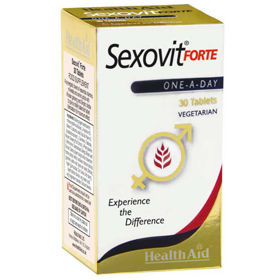
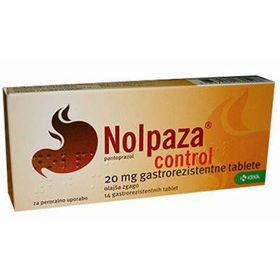
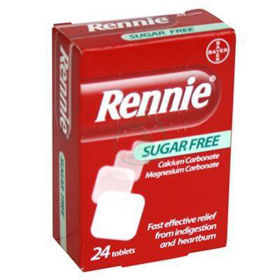
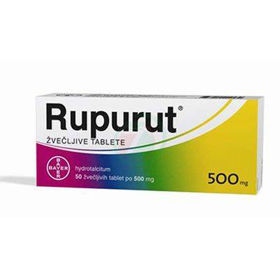
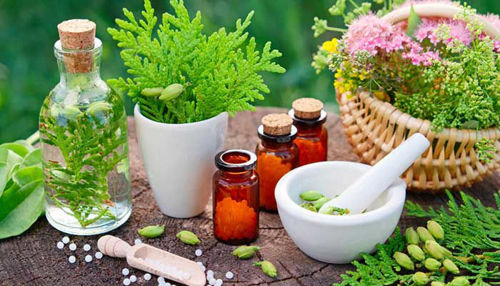
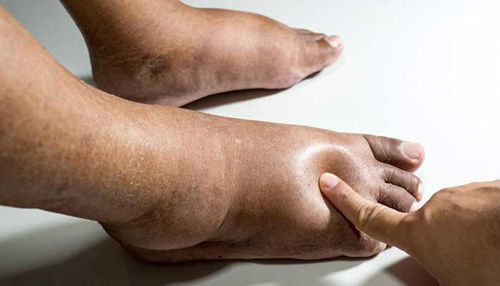

 Facebook
Facebook
 Instagram
Instagram
 info@moja-lekarna.com
info@moja-lekarna.com

